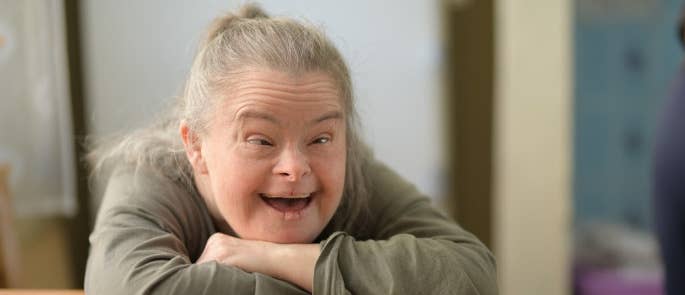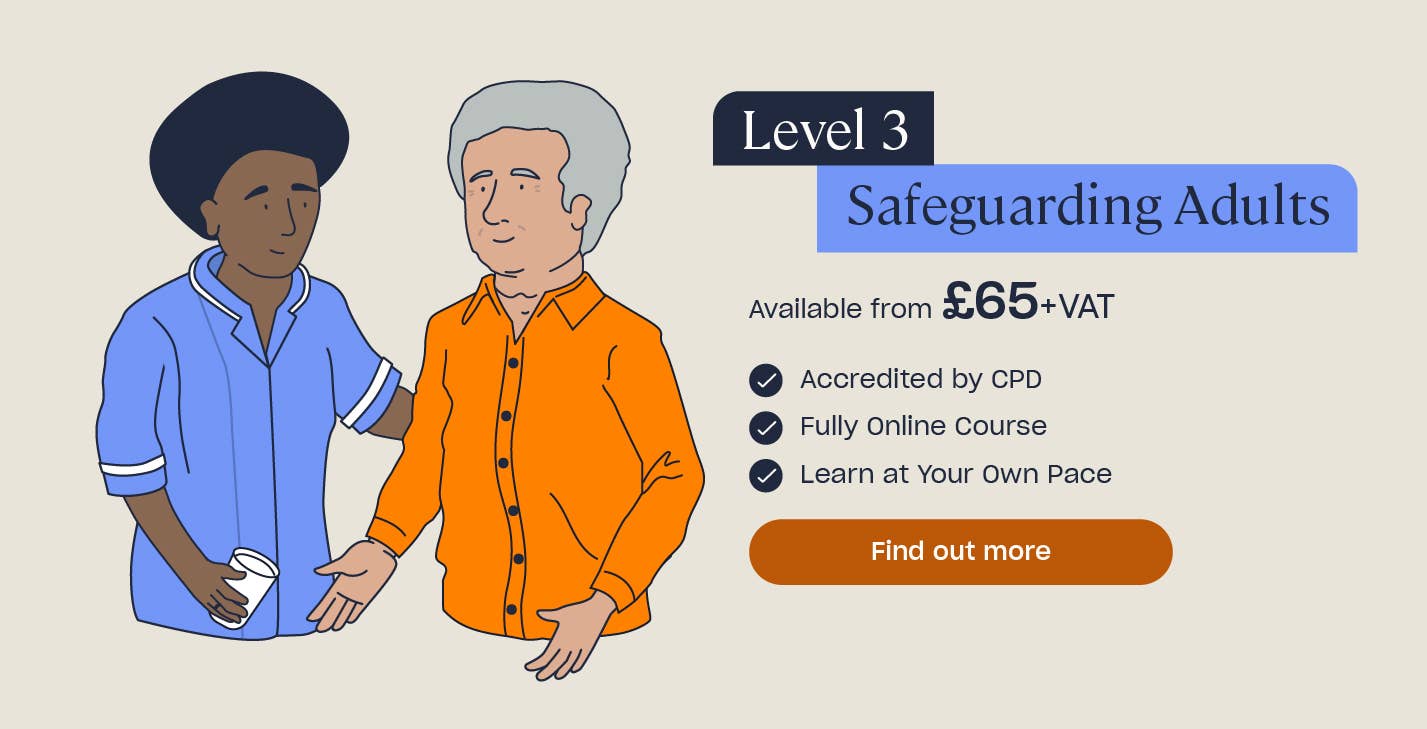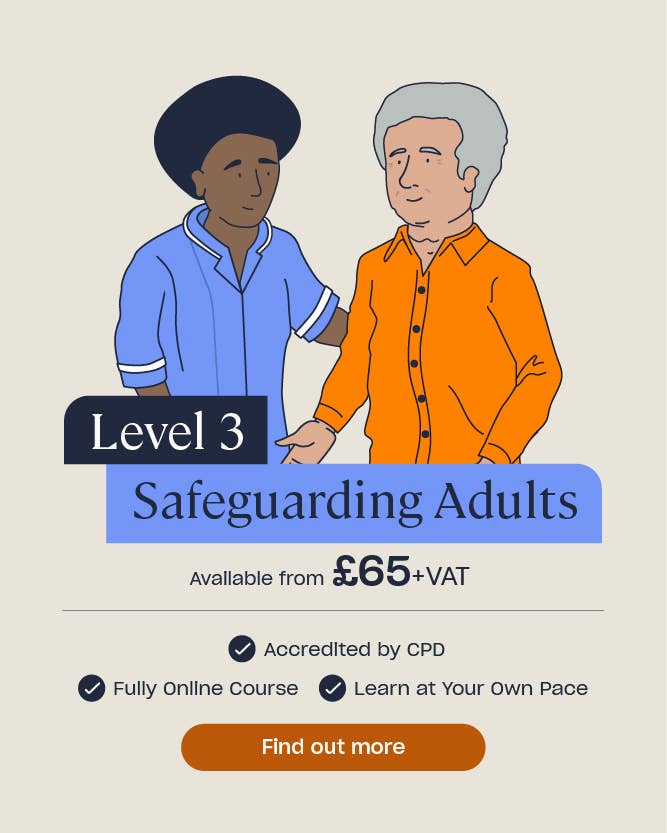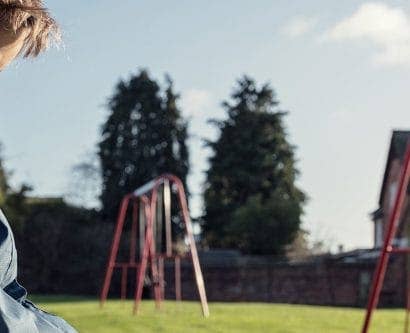Whistleblowing on Safeguarding Adults: Why is it Important in Healthcare?
We all deserve to live a life free from abuse, neglect, and the risk of it, regardless of age, any disabilities, or who we are. Unfortunately, this is not the reality for some adults.
Certain adults are considered more at risk due to their age, if they have a physical or learning disability, if they have a long term health condition and/or they’re frail, or if they are considered as lacking the capacity to make a decision. These adults are known as having safeguarding needs and are sadly at a higher risk of harm due to these needs.
This is clearly unacceptable, and nobody should have to suffer abuse or neglect, especially not at the hands of those who are supposed to protect them. If you suspect that somebody is suffering mistreatment, then you must raise your concern and report it. We will explain how to ‘blow the whistle’, and your protection as a whistleblower, in this article.
What is Whistleblowing Regarding Safeguarding Adults?
The basis of safeguarding adults is to protect adults who have additional support needs that make them at risk to abuse and neglect. If you work with adults in need, you have a duty to protect them at all times, including reporting any instances where this is not the case.
Whistleblowing is the process whereby an employee raises a concern about malpractice, wrongdoing, risk, or illegal proceedings, which harms or creates a risk of harm to the people who use the service, employees, or the wider community.
Whistleblowing is not the same as making a complaint or raising a grievance. Individuals who use a service, their family, or somebody who represents them can make a complaint about a service, usually following the organisation’s complaints procedure. This would be a complaint. Individuals who work in an organisation and want to raise a grievance about their employment rights can make a grievance following an organisation’s dedicated procedure. This would be a grievance.
Whistleblowing, however, is different to both a complaint and a grievance because it involves a situation where an employee raises a concern about some form of malpractice that they have witnessed in their workplace.
Whistleblowing is an essential part of safeguarding adults: all adults deserve to be treated with dignity and respect at all times. In circumstances where they are not being treated this way, whistleblowing ensures that the malpractice is acted upon and that adults at risk receive the care and support they deserve.

Why is Whistleblowing Important in Healthcare?
Sadly, it is not always the case that adults are treated with dignity, respect, and compassion, and in certain cases, their health and safety may be at risk because of the treatment they receive.
If you are a healthcare professional, you have a duty of care towards the adults in your care and a responsibility to draw attention to poor practice in your workplace. If you notice any instances of harm, abuse, or neglect, then you have an individual responsibility to raise concerns to somebody who can take action. Failing to come forward about any wrongdoing that you have witnessed can result in you being accused of colluding with the person(s) who has caused the harm.
All establishments that provide a healthcare service to adults should ensure that the working environment encourages employees to challenge poor and dangerous practices. The working environment should be open and honest to ensure employees feel confident to raise any concerns they have. However, this is not always the case, with some working environments and employers being closed off and not receptive to concerns.
In these situations, whistleblowing is essential to protect the health and safety of everyone. Blowing the whistle can feel like an overwhelming thing to do and it requires careful consideration. However, the consequences of failing to blow the whistle when you know of malpractice can have serious, and even fatal, consequences.

What is the Whistleblowing Procedure for Safeguarding Adults?
Any organisation that interacts with adults at risk should have a whistleblowing policy in place. This policy should outline the organisation’s whistleblowing procedure and provide a detailed explanation about what staff members should do if they suspect instances of wrongdoing.
In the first instance, a staff member should raise their concerns with their line manager or the Designated Safeguarding Person within their organisation. However, someone may choose not to do this for multiple reasons and go straight to a prescribed body instead. They may want to remain anonymous, believe that the organisation will try to cover it up or ignore it, be worried of being treated unfairly for making the complaint, or they may know that the issue was raised before but wasn’t dealt with. Additionally, a person may choose to go to a prescribed body after they’ve reported their concern internally if it wasn’t dealt with in an appropriate and timely manner.
In all of these cases, they should follow the procedure as outlined in the whistleblowing policy, which will usually mean referring the issue to an external prescribed body.
Who Can I Blow the Whistle To in Healthcare?
There are many prescribed bodies who you can blow the whistle to and who will accept your disclosure. The Care Quality Commission (CQC), who are the independent regulator of health and social care services in England, encourage people to come forward to them if they have concerns about the care that is being provided by their employer or about an organisation they regulate. The CQC have published a guide for contacting them on their website.
If you work within the NHS and provide primary care, including if you work in a GP surgery, dental practice, opticians, or pharmacy, then you can raise any concerns you have by using the contact details available on the NHS website. Alternatively, you can raise your concern directly with NHS England by following the guidance outlined here.
Blowing the whistle and making a public disclosure can be a big decision. If you are unsure of what to do, you can contact a solicitor and seek legal advice. Furthermore, while prescribed bodies will be able to discuss and investigate your concern, they are not in a position to offer you specific legal advice, so you should seek legal help if you think you will need it.

Do Whistleblowers Have Legal Protection?
You will be protected by law if you blow the whistle on wrongdoing in your organisation, namely by the Public Interest Disclosure Act 1998 (PIDA). PIDA will protect you if you make a protected disclosure, meaning that you can challenge practices in your workplace and not be discriminated against because of it.
The boundaries for protected disclosures are set out in the Employment Rights Act 1996. These disclosures cover things like criminal offences and damage to the environment, but they also cover safeguarding practices. You would be protected by the law if you made a disclosure related to one or more of the following safeguarding issues:
- The health and safety of an individual has been, or is likely to be, endangered. For example, if a healthcare setting is neglecting the needs of its users.
- Where somebody is trying to cover up wrongdoing. For example, if the owner of a residential home is covering up staff abusing patients.
- A miscarriage of justice has occurred, is occurring, or is likely to occur. For example, if someone has been convicted of abuse but they are innocent.
In practice, this legal protection means that you should not be treated unfairly because you have blown the whistle about malpractice. It also means that, should you be fired as a result of making a complaint, you will be able to claim unfair dismissal at an Employment Tribunal.
Whistleblowing is an essential part of safeguarding adults. If you work with or care for adults at risk, then you have a responsibility to speak up about any concerns you have and protect those adults from abuse and neglect or the risk of it. Although the idea of making a disclosure can be daunting, you are protected by law and you could potentially save someone’s life.
Further Resources:
- Safeguarding Children and Adults at Risk: What is Regulated Activity
- Guidance on Complaints Procedures in Health and Social Care
- Champions in Healthcare: Role and Responsibilities
- Signs of Abuse in Adults
- Level 3 Safeguarding Adults Training Course











